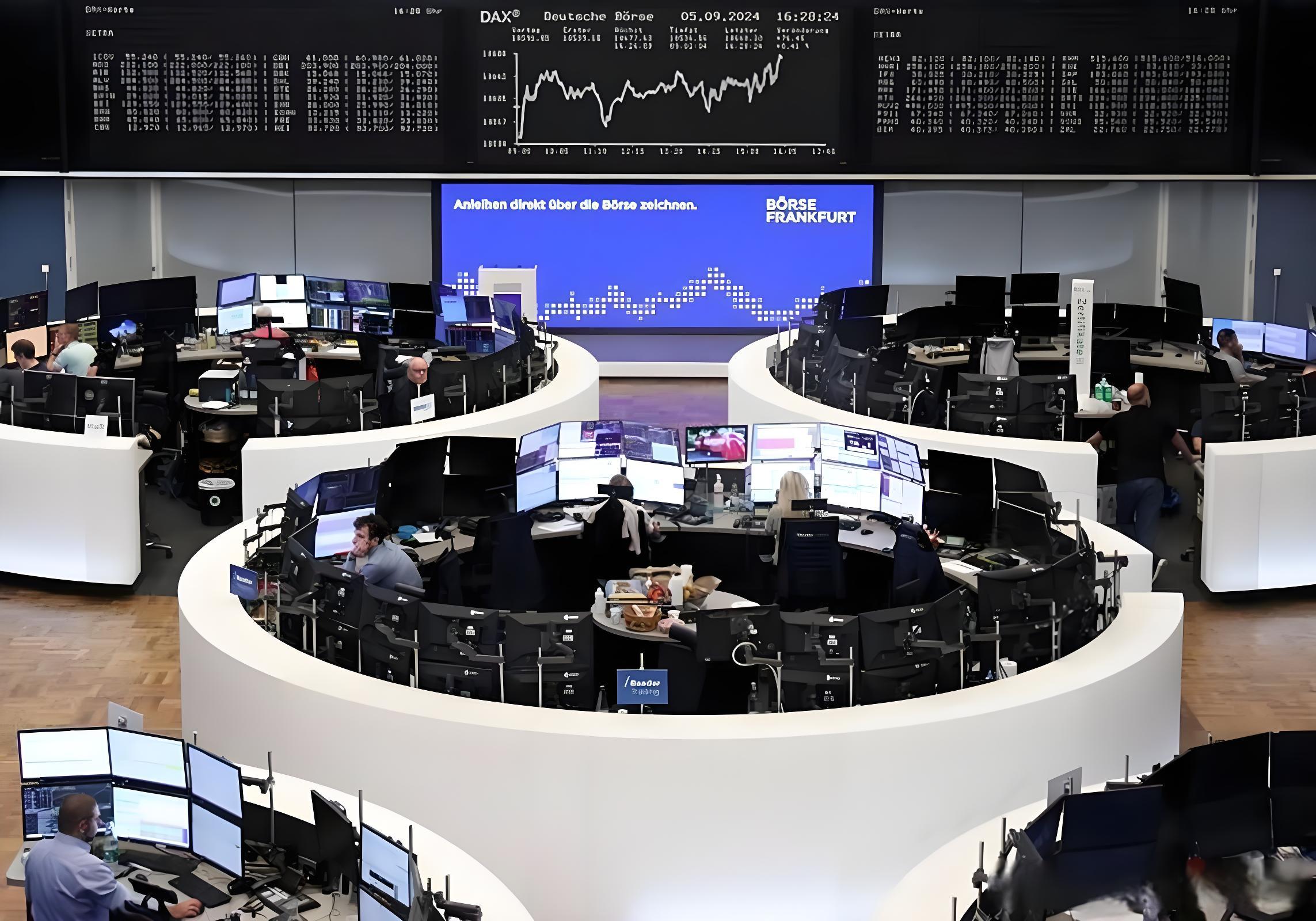
Multiple Concerns Linger on the Path to Economic Recovery On August 21st, European stock markets showed a clear divergence. The European STOXX 600 Index edged up 0.23% to 559.09 points, continuing its recent volatile trend. However, when broken down into major national indices, performances varied significantly: Germany's DAX Index fell 0.6%, France's CAC40 Index dipped slightly by 0.08%, while the UK's FTSE 100 Index bucked the trend with a 1.08% rise. This mixed performance not only reflects differences in economic fundamentals across European countries but also underscores investors' cautious attitude toward Europe's economic outlook.
European Central Bank President Christine Lagarde clearly stated in a recent speech that euro zone economic growth may face slowing pressure in this quarter. This statement, like a bucket of cold water, has brought new uncertainties to the already fragile market confidence. Although the recent trade agreement reached between the euro zone and the United States has alleviated trade frictions between the two sides to some extent and reduced certain market risks, the global trade situation remains complex and volatile. The shadow of trade protectionism has not completely dispersed, casting a cloud over Europe's export-dependent economy.
From the perspective of national stock market performances, the decline in Germany's DAX Index reflects market concerns about the weak growth of the core euro zone economies. As Europe's largest economy, Germany has seen its manufacturing PMI continue to decline recently, with industrial output growth slowing down. Energy price fluctuations and supply chain issues still plague German manufacturing enterprises. Pillar industries such as automotive and machinery manufacturing in Germany are facing the dual challenges of weak global demand and transformation pressures, which have directly affected investors' confidence in the German stock market.
The slight decline in France's CAC40 Index reflects the market's wait-and-see sentiment. Although the French economy has performed relatively steadily in the service sector, the recovery of the manufacturing industry has been slow, and inflationary pressures have not been completely eased. The effects of a series of economic stimulus policies introduced by the French government have not yet fully emerged, corporate investment willingness is insufficient, and the consumer confidence index fluctuates significantly. These factors have collectively led to the sluggish performance of the French stock market.
In sharp contrast, the UK's FTSE 100 Index has risen. After leaving the European Union, Britain's economic development path has been different from that of euro zone countries. Recently, British inflation data has shown signs of decline, and market expectations for the Bank of England's interest rate hikes have cooled, providing certain support for the stock market. At the same time, traditional industries such as energy and finance have a large weight in the UK stock market. The recent rebound in international energy prices and fluctuations in global financial markets have brought phased opportunities to these industries, driving the rise of the FTSE 100 Index.
The divergent trend of European stock markets is the result of the interplay of multiple factors. Corporate earnings reports are an important factor affecting individual stock performance. Recently, many large European companies have released mixed financial results, leading to obvious divergence in stock prices. In terms of industry dynamics, industries such as energy and technology are more active due to the impact of international market price fluctuations and technological changes; while traditional manufacturing and retail industries are facing greater operational pressures, with relatively sluggish stock price performance.
Geopolitical factors also continue to affect European stock markets. The ongoing Russia-Ukraine conflict has led to unstable energy supplies, posing a long-term threat to Europe's energy security. At the same time, policy adjustments in Europe regarding issues such as the refugee crisis and climate change have also brought uncertainties to corporate operations and market expectations. These geopolitical risks, like a sword hanging over European stock markets, constantly test investors' risk tolerance.
For investors, the investment logic in current European stock markets is changing. Against the backdrop of slowing economic growth, defensive sectors such as utilities and healthcare have received more attention; while cyclical sectors such as industry and finance face greater volatility risks. At the same time, the stability of corporate earnings and risk resistance capabilities have become important criteria for investors in stock selection, with companies having strong cash flow and stable business models being more favored.
Looking ahead, Europe's path to economic recovery is still full of challenges. The European Central Bank faces a difficult choice between coping with inflation and supporting economic growth, and adjustments in monetary policy will directly affect stock market trends. The improvement of the global trade environment, the fluctuation trend of energy prices, and the evolution of geopolitical risks will all become key factors determining the future direction of European stock markets. In such a market environment, investors need to remain calm and rational, pay close attention to economic data and policy changes, to cope with complex and changing market risks. The divergence in European stock markets may be only a temporary phenomenon, but the concerns in the economic outlook need to be jointly faced and resolved by all parties in the market.

Junior doctors in the UK officially launched a five-day strike on Wednesday (December 17th).
Junior doctors in the UK officially launched a five-day str…
The Thai Pride Party is considering nomasting three candida…
With the continuous intensification of international sancti…
With $15.82 billion in sales and a 108% year-over-year incr…
According to the South Korean media Dealsite, the recent te…
The current geopolitical conflicts around the world are oft…